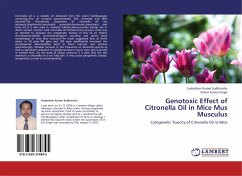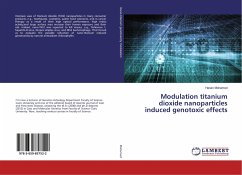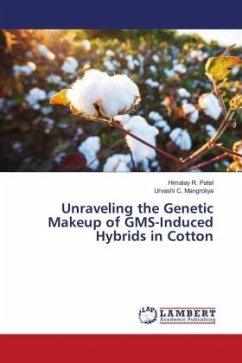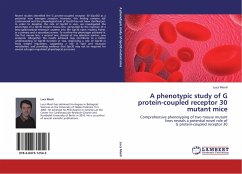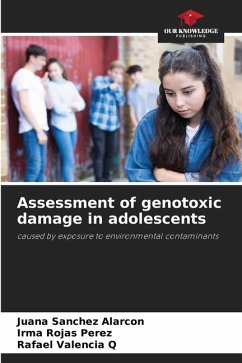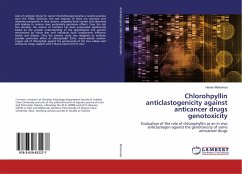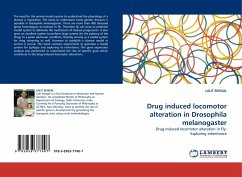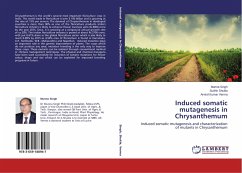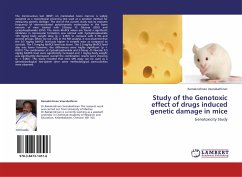
Study of the Genotoxic effect of drugs induced genetic damage in mice
Genotoxicity Study
Versandkostenfrei!
Versandfertig in 6-10 Tagen
32,99 €
inkl. MwSt.

PAYBACK Punkte
16 °P sammeln!
The micronucleus test (MNT) on mammalian bone marrow is widely accepted as a toxicological screening test used as a sensitive method for measuring genetic damage. The aim of the current study was to evaluate frequency of micronucleated polychromatic erythrocytes in the bone marrow of mice treated with 2-Deoxy -D- Glucose (2DG) and cyclophosphamide (CPH). The mean MnPCE values are found a significant inhibition in micronuclei formation was noticed with Cyclophosphamide 125 mg/kg body weight dose (p 0.001) to compare with 2 DG and control groups. When we use 2-DG in the MN analysis, it was obser...
The micronucleus test (MNT) on mammalian bone marrow is widely accepted as a toxicological screening test used as a sensitive method for measuring genetic damage. The aim of the current study was to evaluate frequency of micronucleated polychromatic erythrocytes in the bone marrow of mice treated with 2-Deoxy -D- Glucose (2DG) and cyclophosphamide (CPH). The mean MnPCE values are found a significant inhibition in micronuclei formation was noticed with Cyclophosphamide 125 mg/kg body weight dose (p 0.001) to compare with 2 DG and control groups. When we use 2-DG in the MN analysis, it was observed that the 0.5 mg/kg MnPCE level was higher in treated mice as compared to controls. The 1.0 mg/kg MnPCE level was lower. The 2.0 mg/kg MnPCE level also was lower however; the differences were highly significant (p 0.001). The combination of Cyclophosphamide and 2-Deoxy -D- Glucose 0.5 mg/kg MnPCE level were significantly increased and 1 mg/kg body weight was significantly decreased, overall the combination results were showing (p 0.001). This study revealed that mice MN assay can be used as a genotoxicological test-system since some methodological particularities were observed.



